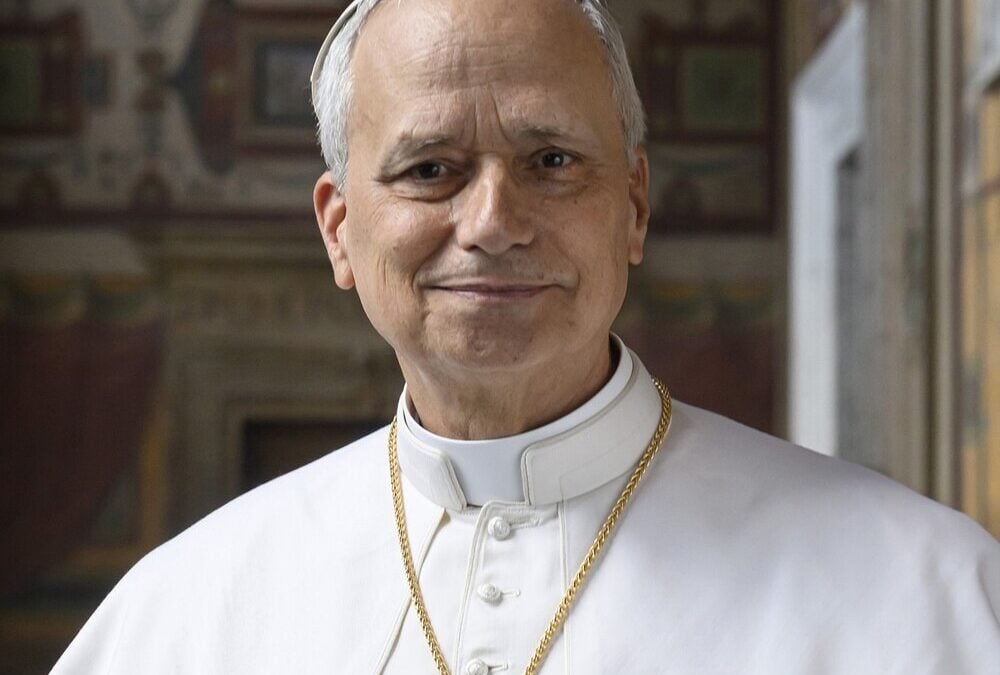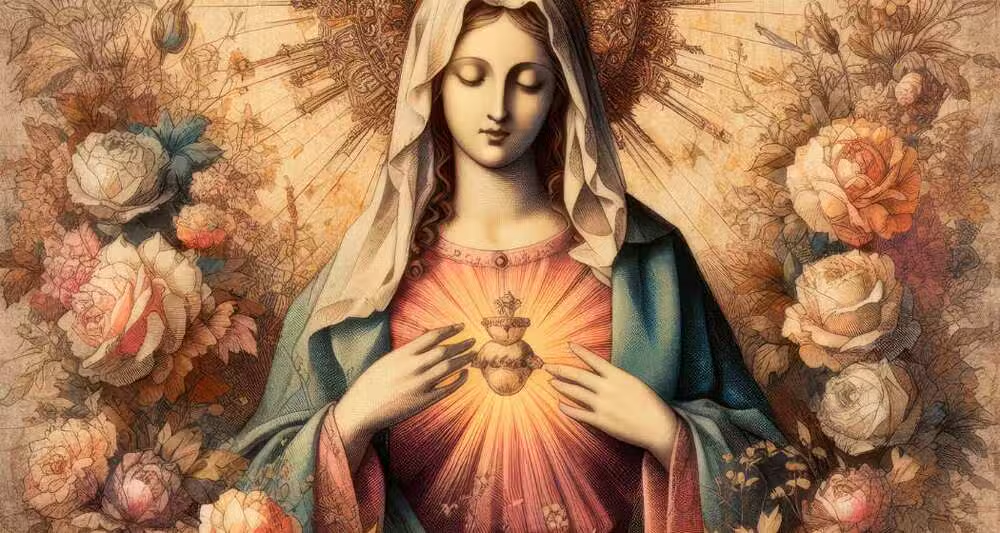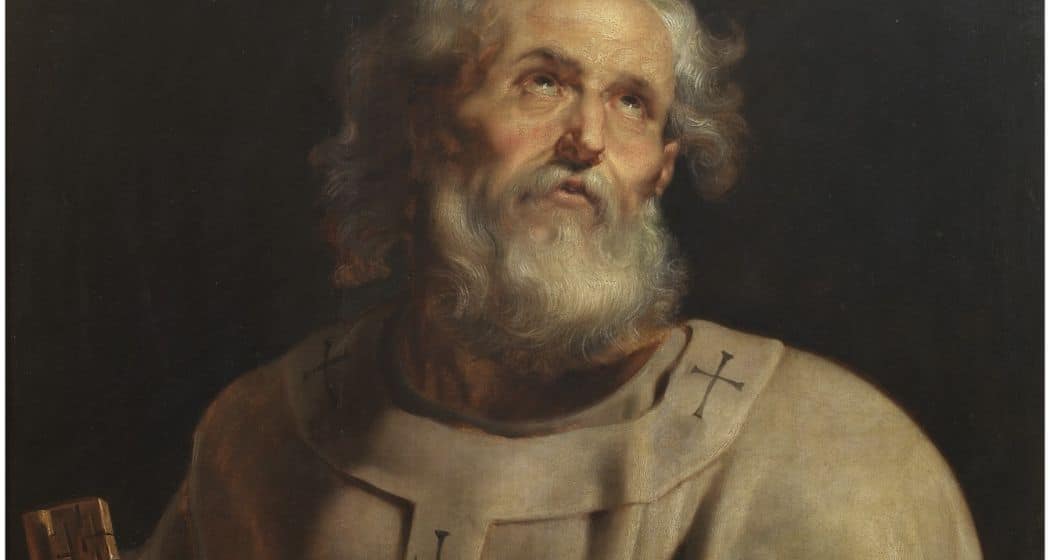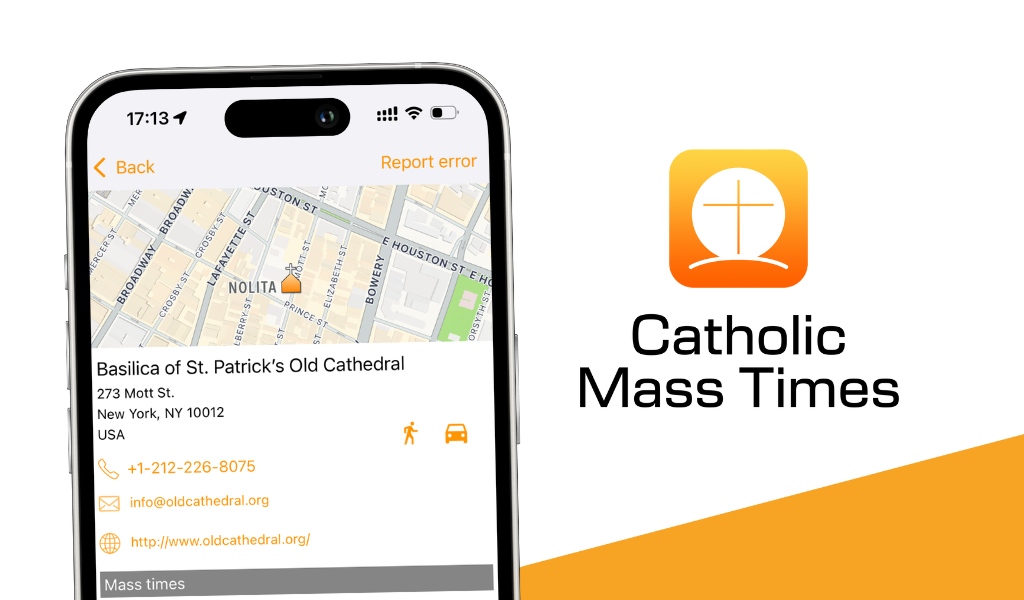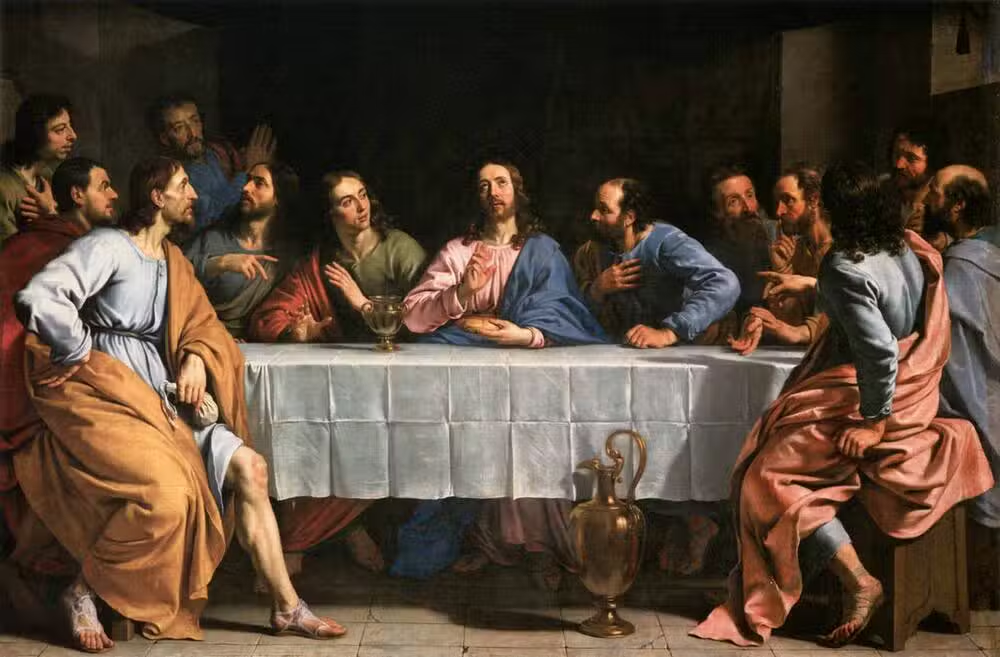The Sacrament of the Anointing of the Sick is a fundamental practice in the Catholic Church designed to provide comfort, peace, and spiritual strength to those who are seriously ill or aging. This practice, deeply rooted in Christian tradition and Jesus’ teachings, has the primary purpose of alleviating the physical and spiritual suffering of the faithful in times of illness or extreme weakness. For many, it is a source of hope and a tangible reminder of God’s presence and love in life’s most difficult moments. Along with confession, they form the sacraments of healing.
Understanding what the Anointing of the Sick is and its importance can be enriched through a detailed exploration of its biblical foundations, historical development, and specific teachings of the Catechism of the Catholic Church. This sacrament not only has significant value for those who receive it but also highlights the importance of the Christian community in supporting and caring for its most vulnerable members.
You can use the Catholic Mass Times app to find the nearest Catholic church with Mass, Confession, and Adoration schedules. It will surely help you! Download it now.
Illness and suffering are universal realities that affect everyone at some point in life. Faced with these experiences, people often seek comfort, meaning, and strength. The Anointing of the Sick offers a response to this search, providing a means through which the faithful can experience God’s healing grace and find a redemptive purpose in their suffering. This sacrament is a manifestation of God’s love and mercy, which becomes present amid pain and affliction.
Additionally, the Anointing of the Sick has a deeply communal dimension. It is not just a sacrament for the sick individual, but also a moment when the Christian community unites in prayer and support. Through the celebration of this sacrament, the Church reaffirms its commitment to care for and accompany the sick and elderly, and to be present with them in their times of need.
1. Foundation
Understanding what the Anointing of the Sick is and how it relates to the economy of salvation is essential to comprehend this sacrament. Since ancient times, illness and suffering have been seen as trials that highlight our human fragility and bring us closer to God. In the Bible, particularly in the Old Testament, the sick sought God for comfort and healing. For example, Psalm 6:3 implores: “Have mercy on me, Lord, for I am faint.”
This act of turning to God in times of illness shows how sickness can be a path towards conversion and strengthening of faith. In the Catechism, we are reminded that illness can lead us to a deeper search for God and to discern what is truly important in life (Catechism, 1501).
2. Christ, the Physician and Redeemer
To understand what the Anointing of the Sick is, it is crucial to recognize Christ’s role as the Divine Physician. Jesus, during His life on earth, showed deep compassion for the sick, healing many of them and forgiving their sins. The Gospel of Matthew relates: “Jesus went throughout Galilee… healing every disease and sickness among the people” (Mt 4:23). These healings not only alleviated physical suffering but also restored people’s relationship with God. According to the Catechism, Jesus’ healings were signs that the Kingdom of God was near and that He is the Savior who came to heal both body and soul (Catechism, 1503-1505).
3. The institution of the sacrament

Understanding what the Anointing of the Sick is and how it was instituted is a vital aspect of this sacrament. The Anointing of the Sick was established by Christ Himself and is recommended in the Scriptures. In the letter of James, we are clearly instructed: “Is anyone among you sick? Let them call the elders of the church to pray over them and anoint them with oil in the name of the Lord” (James 5:14-15). This practice was recognized as one of the seven sacraments of the Church from the early days of Christianity. The anointing with oil, which is mentioned in the Gospel of Mark (Mk 6:13), is a symbolic act that represents God’s healing grace.
The Catechism tells us that this tradition has been maintained and adapted over the centuries, but always with the same purpose of providing comfort and healing to the sick (Catechism, 1512-1513).
4. Who may receive and administer the sacrament
To fully understand what the Anointing of the Sick is, it is necessary to know who can receive and administer this sacrament. The Anointing of the Sick is not only for those who are about to die. According to the Catechism, this sacrament is suitable for any faithful who is in danger of death due to serious illness or old age (Catechism, 1514). Furthermore, anyone in a delicate health situation can receive this sacrament, even if the illness is not necessarily terminal.
Only priests (bishops and presbyters) can administer the Anointing of the Sick. The Catechism emphasizes the importance of pastors instructing the faithful about the benefits of this sacrament and encouraging the sick to call them to receive it. It is essential that both the sick and their families prepare adequately for this sacrament, with the help of the ecclesial community (Catechism, 1516).
5. Effects and graces of the sacrament
What the Anointing of the Sick is and what its effects are is perhaps the most crucial part to understanding this sacrament. The Anointing of the Sick confers a special grace of the Holy Spirit that provides comfort, peace, and strength to face the difficulties of illness or old age (Catechism, 1520). This grace helps the sick to bear their sufferings with greater serenity and to resist the temptations of discouragement and despair. Additionally, this sacrament unites the sick person to the passion of Christ, giving a redemptive meaning to their suffering.
As the Catechism points out, “By the grace of this sacrament, the sick person receives the strength and the gift of uniting himself more closely to Christ’s Passion” (Catechism, 1521). The Anointing of the Sick can also lead to the forgiveness of sins if the sick person has not been able to confess and, in some cases, can contribute to the recovery of physical health if it is beneficial for the spiritual salvation of the sick person (Catechism, 1520).
6. The celebration of the sacrament
What the Anointing of the Sick is and how it is celebrated is also fundamental for a complete understanding. This sacrament is celebrated in a liturgical and communal manner, which means it can take place in different contexts: in the family, in the hospital, or in the church, and can be for a single sick person or for a group of them. It is highly recommended that the Anointing of the Sick be celebrated within the Eucharist, which is the memorial of the Lord’s Passover.
The Eucharist, in this context, reinforces the sense of Christ’s presence with the sick person. According to the Catechism, if circumstances allow, the celebration of the sacrament can be preceded by the sacrament of Penance and followed by the sacrament of the Eucharist (Catechism, 1517).
7. Liturgical elements
What the Anointing of the Sick is and what liturgical elements compose it is important for those participating in its celebration. The celebration includes the laying on of hands by the presbyters, the prayer of faith of the Church, and the anointing with blessed oil. The Catechism explains that these liturgical actions indicate the grace that the sacrament confers on the sick (Catechism, 1519). The laying on of hands is a sign of the invocation of the Holy Spirit and God’s blessing. The anointing with oil symbolizes healing and strengthening, and is a practice that has its roots in biblical tradition.
8. The grace of the Holy Spirit

To fully understand what the Anointing of the Sick is, it is crucial to understand the particular grace of the Holy Spirit that is received. This grace provides comfort, peace, and encouragement to face the difficulties of serious illness or old age. According to the Catechism, this grace is a gift of the Holy Spirit that renews confidence and faith in God, and strengthens against the temptations of the evil one, especially the temptation of discouragement and anguish in the face of death (Catechism, 1520). This divine assistance not only seeks the healing of the soul, but also of the body, if it is God’s will. Furthermore, if the sick person has committed sins, they will be forgiven through this sacrament (Catechism, 1520).
You can use the Catholic Mass Times app to find the nearest Catholic church with Mass, Confession, and Adoration schedules. It will surely help you! Download it now.
9. Union to the Passion of Christ
What the anointing of the sick is and how it unites us to the Passion of Christ is a central aspect of this sacrament. The grace of the sacrament allows the sick person to unite more intimately with Christ’s Passion. This means that the suffering of the sick is not in vain, but has redemptive value. The Catechism points out that “in a certain way they are consecrated to bear fruit by their configuration to the Savior’s redemptive Passion” (Catechism, 1521). This union with Christ transforms suffering into a participation in Jesus’ salvific work, giving new meaning and purpose to pain and illness.
10. Ecclesial grace
To understand what the anointing of the sick is, we must also consider its communal or ecclesial dimension.
This sacrament not only benefits the individual who receives it, but also has an impact on the entire Church. According to the Catechism, the sick who receive this sacrament, “by freely uniting themselves to the passion and death of Christ, contribute to the good of the People of God” (Catechism, 1522). When the Church celebrates this sacrament, it intercedes for the good of the sick, and the sick, in turn, contribute to the sanctification of the Church and the good of all people. This ecclesial dimension highlights the profound connection between all members of the Church and the importance of praying for one another.
11. Preparation for the final transit
What the anointing of the sick is and how it prepares the faithful for the final transition is an essential part of its purpose. This sacrament prepares the sick for the passage to eternal life. The Catechism reminds us that “the anointing of the sick completes our conformity to the death and Resurrection of Christ, just as it began in Baptism” (Catechism, 1523). If the sick person is about to depart this life, the anointing of the sick is accompanied by the Eucharist as Viaticum. Viaticum is the last communion of the Christian, and it is particularly significant because Jesus becomes present in a special way to accompany the sick person on their final journey towards eternal life.
12. Community prayer
What the anointing of the sick is and the role of the community’s prayer is something that should not be overlooked. The celebration of this sacrament includes the prayer of the entire Church, not just the priest. This collective prayer expresses the loving concern of the Christian community for its sick members. The Letter of James says: “The prayer of faith will save the sick, and the Lord will raise them up” (James 5:15). This prayer of faith is a manifestation of trust in God’s healing power and His will to save those who suffer.
13. Relationship with other sacraments
To understand what the anointing of the sick is, it is helpful to see how it relates to other sacraments. The anointing of the sick is closely linked to the sacrament of Penance and the sacrament of the Eucharist. According to the Catechism, when circumstances allow, it is very appropriate for the celebration of the anointing of the sick to be preceded by confession and followed by Eucharistic communion (Catechism, 1517). These sacraments together prepare the sick person in a comprehensive way, offering forgiveness of sins, spiritual strengthening, and the presence of Christ in the Eucharist.
What the anointing of the sick is and the importance of the oil is also a significant aspect. The oil used in this sacrament is blessed by the bishop, and on some occasions, by the priest himself who celebrates the sacrament if necessary. This oil, called the oil of the sick, is a visible sign of the invisible grace conferred by the sacrament. The anointing with this oil symbolizes the healing and comfort that God offers through the sacrament. The Catechism explains that this oil is a sign of the Holy Spirit who strengthens and heals us (Catechism, 1519).
14. The oil of the sick
What the anointing of the sick is and the importance of the oil is also a significant aspect. The oil used in this sacrament is blessed by the bishop, and on some occasions, by the priest himself who celebrates the sacrament if necessary. This oil, called the oil of the sick, is a visible sign of the invisible grace conferred by the sacrament. The anointing with this oil symbolizes the healing and comfort that God offers through the sacrament. The Catechism explains that this oil is a sign of the Holy Spirit who strengthens and heals us (Catechism, 1519).
15. History and evolution of the sacrament

What the anointing of the sick is and its history is important to understand its evolution and current practice. Since the first centuries, the Church has practiced the anointing of the sick, following Jesus’ command and the teachings of the apostles.
Throughout history, this sacrament has evolved in its form and practice, but its essence has remained. In the Middle Ages, for example, this sacrament was known as the “extreme unction” and was reserved almost exclusively for the dying. However, the Second Vatican Council renewed the practice of the sacrament, emphasizing that it is not only for those on the threshold of death, but for all the faithful who are seriously ill or elderly, thus seeking to restore its original and broader use.
16. Pastoral importance
To understand what the Anointing of the Sick is, we must also consider its pastoral importance. Priests and pastoral ministers have a vital role in ensuring that the sick and elderly receive this sacrament at the appropriate time. This involves visiting the sick, offering them spiritual and emotional support, and ensuring that they are well prepared to receive the sacrament. The Catechism emphasizes that the pastoral care of the sick is an essential task of the Church and that each Christian community must care for its sick members with special solicitude (Catechism, 1516).
17. The spiritual preparation of the sick person
What the Anointing of the Sick is and the spiritual preparation of the sick are aspects that go hand in hand. Before receiving the sacrament, it is important that the sick person is spiritually prepared, which may include confession of sins and prayer. This preparation helps the sick person to receive the sacrament with an open heart and willingness to accept God’s grace. Moreover, spiritual preparation strengthens the faith of the sick person and helps them face their illness with hope and confidence in divine mercy.
18. The role of the family and the community
To understand what the Anointing of the Sick is, it is also necessary to recognize the role of family and community in this sacrament. The family of the sick person and the Christian community have the responsibility to support the sick not only physically, but also spiritually. This includes praying for the sick person, accompanying them during the celebration of the sacrament, and offering comfort and encouragement. The Catechism emphasizes that the love and support of family and community are an extension of Christ’s love for the sick (Catechism, 1516).
19. The mystery of suffering
What the Anointing of the Sick is and the mystery of suffering is something we all must reflect upon. Illness and suffering are part of the mystery of human life, and often, we cannot fully understand their purpose. However, through the sacrament of the Anointing of the Sick, the Church offers a response of faith to human suffering. This sacrament reminds us that Christ suffered for us and that our suffering can be united with His for a greater purpose. The Catechism tells us that “suffering, united to the Passion of Christ, can have a redemptive value” (Catechism, 1521).
20. Hope in the resurrection
Finally, to understand what the Anointing of the Sick is, we must consider the hope in the resurrection that this sacrament offers us. Through the Anointing of the Sick, the faithful who are ill and elderly receive the strength to face their illness with hope in eternal life. The sacrament reminds us that, although our bodies may suffer and decay, our souls are destined for eternal life with God. The Catechism assures us that “the grace of this sacrament renews trust and faith in God and strengthens against the temptations of the evil one, especially the temptation of discouragement and anguish in the face of death” (Catechism, 1520).
Biblical and Saints Quotes
- Bible: “Is anyone among you sick? Let him call for the priests of the church, and let them pray over him and anoint him with oil in the name of the Lord. And the prayer of faith will save the sick person, and the Lord will raise him up, and if he has committed sins, they will be forgiven him” (James 5:14-15).
- St. John Paul II: “Suffering, more than anything else, opens the way to the grace that transforms the human soul” (Salvifici Doloris, 27).
- St. Teresa of Calcutta: “The suffering of the sick and the poor is a prayer that lifts us up to God.”
The Anointing of the Sick strengthens the bond between the individual and the ecclesial community. The celebration of this sacrament is not an isolated act, but involves the entire community in an expression of solidarity and support. By joining in prayer for the sick, the Christian community reaffirms its commitment to accompany and care for its most vulnerable members. This sense of belonging and community is fundamental in Christian life and is a source of comfort and hope for the sick and their families.
As we reflect on what the Anointing of the Sick is, we are called to deepen our faith and renew our commitment to care for and accompany the sick and suffering in our communities. The Anointing of the Sick is not just a sacramental rite, but a living expression of God’s love and mercy towards all of us.
If you or a loved one need to receive the Anointing of the Sick, it’s important to seek out a priest in time to receive this sacrament of grace and strength. Don’t wait until the last moment to draw near to God and the faith community.
Use the Catholic Mass Times app to find the schedules of a nearby Catholic church and attend today! Download it now.
Who Can Receive the Anointing of the Sick?
The Anointing of the Sick is intended for baptized faithful who are suffering from a serious illness, are in danger of death, or facing high-risk surgery. It can also be received by the elderly whose health has significantly weakened. It is not a sacrament exclusively for those on their deathbed, but for anyone with a serious illness.
When Should the Anointing of the Sick Be Requested?
It should be requested when a person faces a serious illness, before major surgery, or in life-threatening situations. It is also recommended for the elderly with fragile health. It’s not necessary to wait until the last moment, but to seek it when there is a serious threat to physical or spiritual health.
What Are the Spiritual Effects of the Anointing of the Sick?
The sacrament grants strength, peace, and comfort to the sick, helping them to bear their suffering with faith. It can also bring healing of the body if it is God’s will. Additionally, it forgives sins if the person cannot confess and prepares them spiritually in case they must depart to eternal life.
Can the Anointing of the Sick Be Received More Than Once?
Yes, it can be received more than once. If the person recovers from their illness and then becomes seriously ill again, they can receive it again. It is also valid if the illness worsens over time or if there is a new life-threatening situation.
Does the Anointing of the Sick Forgive Sins?
Yes, if the person is in a state of sin and cannot confess, the Anointing of the Sick forgives sins. However, if the sick person is conscious and able, they should first receive the sacrament of confession. The anointing is a sign of God’s mercy and His love for those who suffer.





